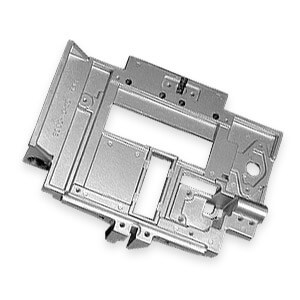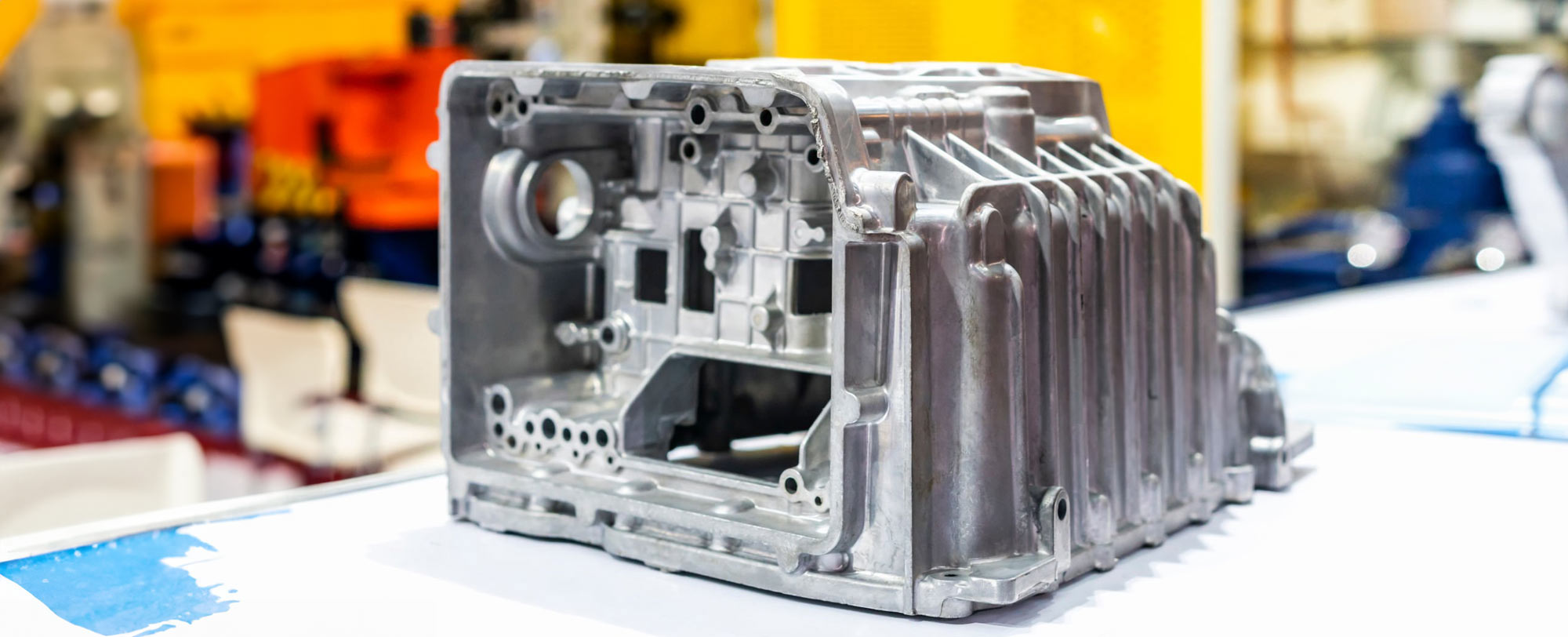Aluminum Foundry expertise that delivers superior product quality
Wiki Article
How Light Weight Aluminum Foundries Contribute to Various Industries: An Extensive Introduction
Light weight aluminum shops work as necessary suppliers throughout multiple fields, including automobile, aerospace, building, and electronics. They produce elements that are not only lightweight however also sturdy, boosting the efficiency of numerous items. With innovative casting methods and a dedication to sustainability, these factories are adapting to meet developing market demands. As they innovate, the influence of light weight aluminum castings on different applications raises important concerns regarding the future of manufacturing. What exists ahead for this essential industry?The Duty of Aluminum Foundries in the Automotive Industry
As the vehicle sector significantly accepts lightweight materials to enhance fuel efficiency and efficiency, light weight aluminum foundries play a critical duty in this advancement. These centers specialize in the production of aluminum spreadings, which are crucial elements in contemporary lorries. By offering high-strength, light-weight parts, aluminum shops enable suppliers to decrease the total weight of lorries, ultimately causing enhanced fuel economic situation and decreased discharges.Aluminum's resistance to rust better boosts lorry durability, making it an appealing selection for automakers. Foundries use innovative strategies such as die spreading and sand casting to produce specific and complex components, ensuring that they meet rigorous market requirements. Furthermore, the capability to reuse light weight aluminum efficiently adds to a much more sustainable manufacturing procedure. As the auto industry remains to introduce, light weight aluminum shops will certainly stay critical in providing the products required for the future generation of lorries, supporting both performance and ecological goals.

Aerospace Applications of Aluminum Castings
Light weight aluminum castings are indispensable to the aerospace sector, supplying a mix of lightweight strength and toughness that is important for aircraft performance. These castings are used in different parts, such as engine components, structural structures, and touchdown equipment, where weight reduction is vital for fuel performance and general security. The versatility of light weight aluminum enables for complex geometries that improve aerodynamic efficiency while keeping architectural honesty.Innovations in casting modern technologies have boosted the precision and surface area coating of aluminum components, reducing the requirement for comprehensive post-processing. This effectiveness not just increases production timelines however also reduces expenses, making aluminum an eye-catching option for makers. The deterioration resistance of light weight aluminum guarantees longevity and reliability in extreme operating environments, further establishing its function in aerospace applications. As the industry progresses, aluminum spreadings remain to be a necessary material, driving development and supporting the growth of next-generation airplane.
Building Market Advancements Via Aluminum
The building market has increasingly embraced aluminum due to its light-weight buildings and adaptability, paralleling its successful applications in aerospace. Innovations in aluminum layout have actually led to stronger, a lot more efficient structures, enabling home builders and architects to check out brand-new possibilities. The material's resistance to corrosion and low upkeep needs make it particularly appealing for both domestic and commercial projects.Aluminum's convenience helps with the development of detailed designs, enabling for visual enhancements that were previously tough with conventional products. Prefabrication methods have also progressed, making use of light weight aluminum to decrease construction time and expenses considerably. Additionally, the power performance of aluminum systems-- such as home window frames and roof-- adds to sustainable structure practices, aligning with modern-day environmental requirements. As the building and construction industry proceeds to welcome these innovations, light weight aluminum's duty is anticipated to expand, driving more development and contributing to the advancement of durable frameworks.
Electronics and the Demand for Lightweight Aluminum Components
With the rapid improvement of innovation, the demand for light-weight aluminum components in the electronic devices field has surged. As devices come to be extra mobile and small, producers look for materials that use both longevity and weight reduction. Aluminum, with its exceptional strength-to-weight ratio, has emerged as a preferred option for components such as cases, warm sinks, and structural assistances.Using light weight aluminum not only improves product efficiency yet also contributes to energy efficiency, as lighter gadgets call for much less power during operation. Additionally, aluminum's outstanding conductivity makes it excellent for electronic applications, ensuring effective warm dissipation and lessening the danger of getting too hot.
As consumer choices shift towards sleek and light-weight gizmos, light weight aluminum factories play a necessary function in fulfilling the progressing demands of the electronic devices sector (aluminum casting). Their capacity to produce premium and accurate light weight aluminum elements sustains innovation, making it possible for producers to push the boundaries of design and functionality
Sustainable Practices in Aluminum Foundries
As the electronic devices industry increasingly focuses on sustainability, light weight aluminum shops are adjusting their methods to align with these ecological goals. Several shops are carrying out recycling programs that redeem light weight aluminum scrap, considerably minimizing the demand for raw products and minimizing waste. By making use of energy-efficient innovations, these facilities are reducing their carbon impact; as an example, employing electric heating systems rather of typical gas-fired ones can result in considerable power cost savings.Furthermore, aluminum shops are buying water have a peek at this site preservation procedures, such as closed-loop systems that recycle water made use of in cooling procedures. These practices not only reduced water consumption but additionally alleviate the ecological impact connected with wastewater discharge. Lots of factories are checking out eco-friendly power resources, such as solar and wind power, to satisfy their power needs sustainably. Through these efforts, light weight aluminum shops exemplify a dedication to ecological stewardship while remaining to satisfy the needs of the electronics sector.
Future Patterns in Light Weight Aluminum Foundry Technologies
Arising modern technologies are poised to pop over to these guys transform aluminum factories, boosting performance and product quality while advancing sustainability efforts. Advancements such as expert system and artificial intelligence are expected to enhance manufacturing processes by forecasting devices failures and improving resource allowance. The combination of innovative robotics will certainly streamline operations, minimizing labor costs and lessening human mistake.Additive production, or 3D printing, is also getting traction, allowing the production of complicated geometries that were previously unattainable with traditional techniques. This shift can cause substantial material financial savings and decreased waste. In addition, smart factories utilizing IoT (Internet of Points) technologies will certainly allow real-time tracking and data analysis, cultivating proactive decision-making.
The adoption of cleaner melting innovations and reusing methods will certainly better decrease the ecological impact of aluminum factories, making them extra lasting. Jointly, these trends indicate a future where aluminum shops can operate with greater effectiveness and responsibility.
Frequently Asked Concerns
What Are the Environmental Effects of Aluminum Foundries?

Exactly How Do Foundries Ensure High Quality Control in Aluminum Spreading?
Shops ensure quality control in light weight aluminum spreading by applying strenuous assessment procedures, utilizing sophisticated informative post technology, conducting routine material testing, and adhering to sector requirements, consequently maintaining consistency and dependability in their completed items. Aluminum Casting Company.What Is the Typical Life Expectancy of Light Weight Aluminum Cast Components?
The typical life expectancy of light weight aluminum actors parts usually ranges from 10 to 50 years, depending upon factors such as environmental problems, use, and maintenance. Proper treatment can greatly enhance their sturdiness and performance gradually.How Are Light Weight Aluminum Alloys Selected for Particular Applications?
Light weight aluminum alloys are picked based upon aspects such as strength, corrosion resistance, weight, and thermal conductivity. Engineers evaluate the certain needs of applications to figure out one of the most suitable alloy for ideal efficiency and durability.What Are the Safety Regulations for Light Weight Aluminum Factory Employees?
Safety guidelines for aluminum foundry workers consist of personal protective tools requireds, ventilation requirements, exposure limitations to dangerous products, and procedures for taking care of molten steel. Conformity warranties worker safety and security and lessens health threats connected with foundry operations.As the vehicle industry increasingly accepts lightweight products to boost fuel efficiency and performance, aluminum factories play a critical role in this evolution. As consumer preferences shift towards sleek and light-weight gizmos, light weight aluminum foundries play a necessary duty in satisfying the progressing needs of the electronic devices sector. As the electronics industry significantly focuses on sustainability, light weight aluminum foundries are adjusting their practices to line up with these environmental objectives. Numerous factories are applying recycling programs that reclaim light weight aluminum scrap, considerably lowering the demand for raw products and decreasing waste. Security policies for light weight aluminum foundry employees consist of personal safety devices requireds, air flow demands, direct exposure limits to unsafe products, and procedures for taking care of molten metal.
Report this wiki page